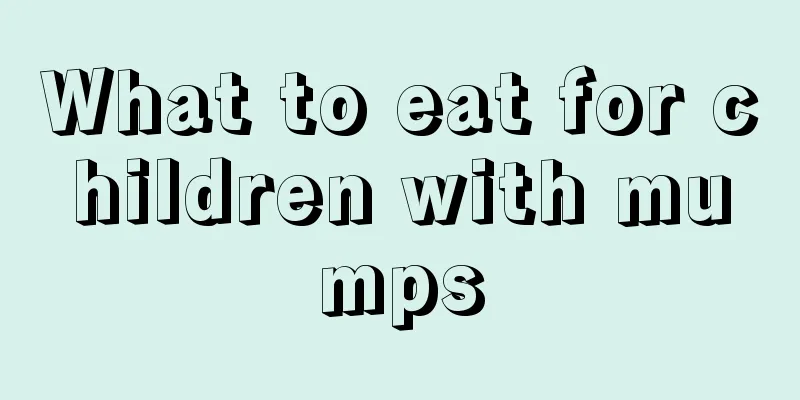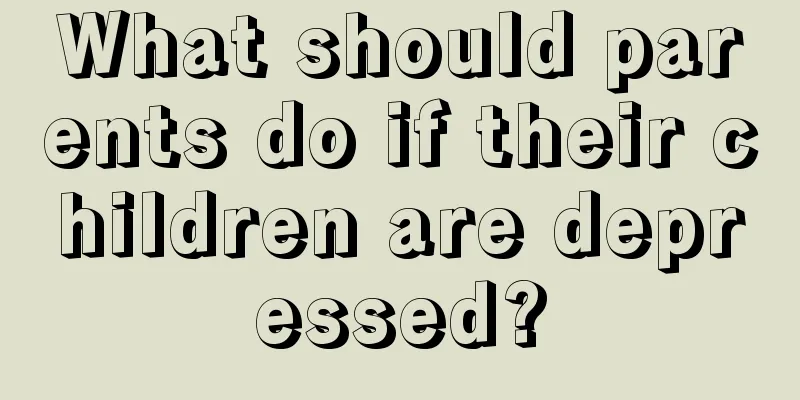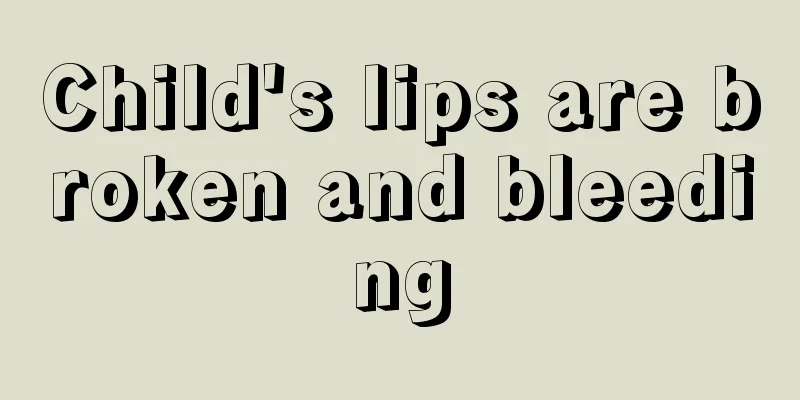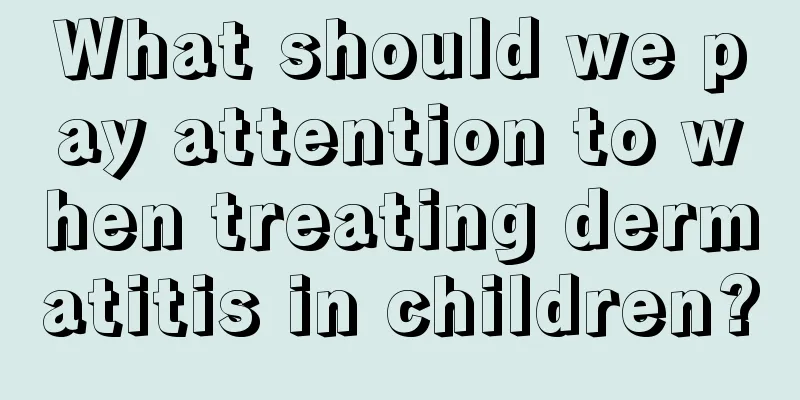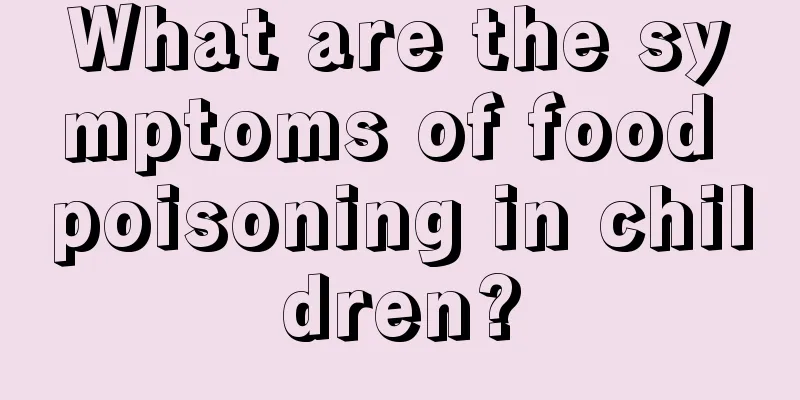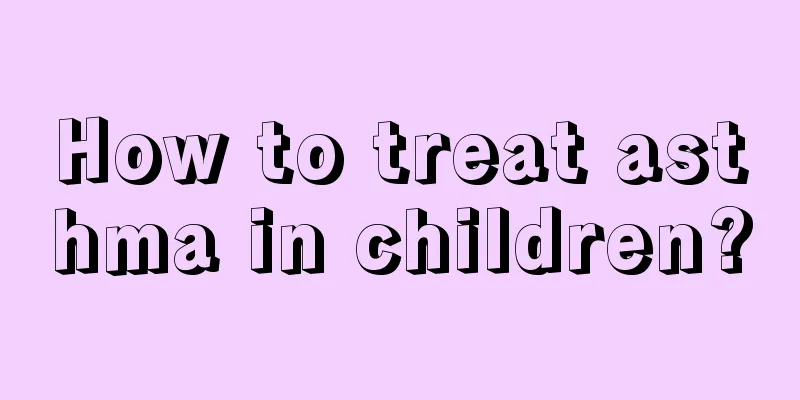What medicine should be used for children's ear inflammation?
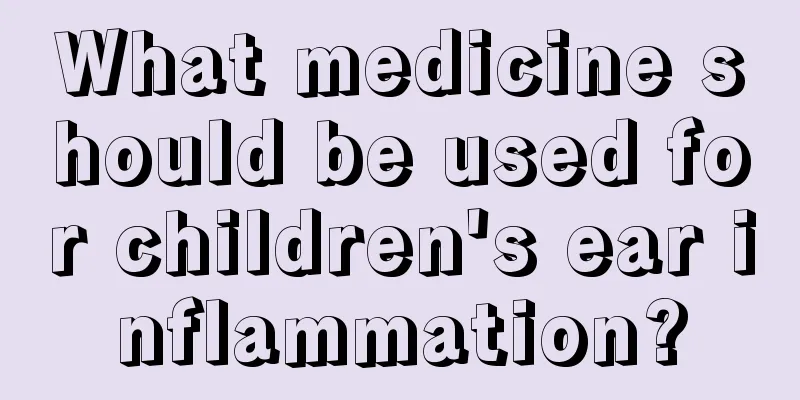
|
Inflammation inside the ear is collectively known as otitis in medicine. Inflammation of the ear includes otitis externa and otitis media, so first of all, we must make the correct distinction. In fact, the distinction method is very simple. Then, we must provide correct care. First of all, we must do a good job of hygiene to avoid worsening of the disease. In addition, if a child has ear inflammation, we must prevent the child from scratching his ears with his hands. On this basis, the following medicines can be used to help treat it. What medicine should be used for children's ear inflammation? The main treatment option for otitis media is to choose effective antibiotics, commonly used ones include penicillin, erythromycin, azithromycin, cephalosporin, etc., with sufficient dosage and a course of treatment of at least 1 week. Other local ear treatment measures include cleaning, drainage of pus, ear antibiotic drops and a small amount of ear powder. Antibiotics should be used under the guidance of a doctor and should not be stopped without authorization. At present, if the baby is under two years old, oral antibiotics are used to fight otitis media, and the course of treatment is about 10 days; for those over two years old without complications, 5 to 7 days is recommended, but it still needs to be adjusted depending on the patient's clinical response to antibiotic treatment. In addition, the degree of cooperation of parents and whether children take medication as ordered by doctors, such as the number of times the medication is taken daily, dosage form and taste, are all factors that affect efficacy. Therefore, parents must absolutely follow the doctor's instructions. If your baby doesn't like the taste of the medicine or has difficulty taking it, you can choose a syrup-type medicine with a better taste, or use intramuscular injection instead. In addition, it should be noted that after taking the medicine, you should return to the hospital for a follow-up visit to determine whether the treatment is effective, whether the medicine needs to be changed, or whether a longer course of treatment is needed. The treatment must be thorough to avoid repeated infections and sequelae that affect hearing. 30-70% of babies will develop middle ear effusion 10-14 days after using antibiotics to treat acute otitis media. Most of the effusion will be automatically absorbed and disappear through the human body within 3 months, so it will not have much impact on health and there is no need to worry too much. If the baby only has middle ear effusion and no other symptoms, it may be recommended to adopt a follow-up observation method first, that is, to perform an otoscopy examination once every one month or one and a half months; during the follow-up period, the family environment should be improved, such as avoiding contact with cigarettes in the environment as much as possible; reducing the use of pacifiers; not lying down to feed or breastfeed, etc. |
<<: Symptoms of pathological spitting up in babies
>>: Low neutrophil count in children
Recommend
What to do if your child's breasts develop early
We all know that every girl will go through a pro...
How to treat a foreign body sensation in a child's throat
When your child feels there is a foreign object i...
How old does a baby have to be to stop spitting up milk?
In fact, nowadays babies need to pay special atte...
Steps to make mashed potatoes for baby food
After giving birth, every mother focuses on addin...
Can baby food cure eczema?
After birth, babies are prone to skin eczema beca...
What should I do if my baby scratches his head?
Learning to grab things is a stage that every bab...
What to do if your child eats very slowly
We know that children eat relatively slowly. Even...
Can babies eat yam and red dates porridge?
The two main ingredients added to yam and red dat...
What are the symptoms of nasal polyps in children?
This may be the first time you have heard of the ...
Why do children keep blinking?
We all know that every parent must observe their ...
Popliteal cyst surgery
Popliteal cysts usually occur in children. This t...
5 month old baby head circumference
After the baby is born, many new parents will pay...
What to do if your voice becomes hoarse during the voice change period
Adolescence is the best period of growth for chil...
What to eat is good for baby's skin
The baby's skin is very delicate and smooth, ...
What harm does fluorescent agent have on babies?
When it comes to fluorescent agents, many people ...
